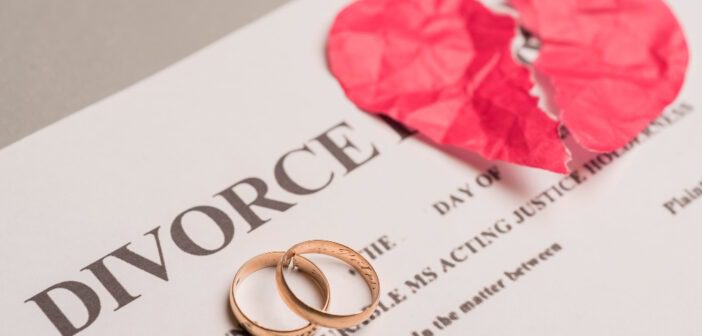Money issues are some of the leading causes of divorce – having these conversations before getting married help build better foundations.
By Joan Ogeto
What a fascinating period in history. It is characterized by people planning divorces before getting married. It is almost as if couples are intuitively aware that their marriages are bound to fail. Not only that but statistically it has been demonstrated that over 40% of marriages end in divorce. This reality has become so prevalent that it is not seen as a moral fault anymore.Some unions that do not succumb to divorce inevitably end in death.
The truth is that when two people get married, they are not only merging their hearts, bodies and souls but also their financial assets. Although planning for the end of a marriage is a dreadfully unromantic fact, and the last thing any couple wants to be doing while preparing for the perfect wedding, it is definitely
something that should be considered prior to these life-long unions. This is what prenuptial agreements are about, or ‘prenup’ for short.
A prenuptial agreement is a written contract created and signed by two people before they get married. They have in fact been around for centuries, dating back to ancient Egypt. One of the earliest recorded prenup is said to be over 2,000 years old, in an ancient Jewish marriage contract called a Ketubah. Today prenups are notarized contracts drafted by lawyers to identify individual assets registered to the spouse at the time of marriage.
Prenuptial agreements generally have a negative reputation. They have been known to create the wrong ambience for the wedding since they have the connotation that the couples foresee a divorce later in their marriage. Some think of these agreements as selfish and controlling so that in the case of a divorce, there is no division of property or assets. This however is far from the truth. The reality is that prenuptial agreements clarify financial matters for the couple intending to get married.
They are powerful tools in guiding individuals on matters regarding pre-marital and marital assets, debts and what would happen should the marriage end in a divorce or death. These contracts help build trust and open lines of communication right from the start of the marriage. Contrary to popular belief, prenuptial agreements are not only limited to the rich. While in some cases prenups are used to protect the assets of a wealthy fiancé, couples of more modest means are increasingly turning to them for their own purposes.
These agreements state the financial rights of a spouse and identify portions of assets or property that will pass as inheritance. Since money issues are one of the leading causes of divorce, having these conversations before getting married help build better foundations for stronger and long-lasting unions.
Prenups have been gradually gaining recognition in Kenya as more people are recognizing they are an efficient and cost effective way to safeguard in case of separation.
An example would be a scenario where a shareholder who owns a company with his/her family members may be able to exclude their shareholding from the assets that his future wife/ husband may be able to claim as their own through a divorce. This would prevent a resentful ex-spouse from eventually owning a portion of the family assets.
The legal frameworks governing prenuptial agreements are the Constitution and the Matrimonial
Property Act. They came to be as a result of Article 40 of the Constitution which provides for protection of right to property in any part of Kenya. Article 40(2)(b) when read together with Article 27(4) specifically impart that the parliament cannot enact laws that permit the state, whether directly or indirectly, to limit/restrict the enjoyment of any right to property against any person on any ground including marital status.
Under Section 6(3) of the Matrimonial Property Act, spouses may enter voluntarily into prenuptial agreements before marriage to identify individual properties. The prenuptial document establishes property and financial rights of each spouse in the event of marriage dissolution. It sets out terms
of ownership of assets, treatment of future earnings and control of property. This document is binding and it takes precedence over other principles of subdividing matrimonial property.
The general presumption for an asset held jointly by a married couple is that there may have been equal contribution and as such there is to be equal division unless proved otherwise. In relation to any other asset acquired by one spouse, whether before or after marriage, which is not matrimonial property, such as a commercial property or shares in a company, if the other spouse has contributed to the improvement of that property then the contributing spouse may also acquire a beneficial interest in
that property equal to the contribution made.
A contribution could be monetary as well as non-monetary, such as companionship, child care and
housework, amongst others. It is difficult to put a proportionate value to nonmonetary contribution and it is up to the court to establish based on evidence provided. If individuals considering marriage do not wish for the asset distribution provisions of the Act to apply, then they may choose to voluntarily enter into a contract before their marriage setting out what their respective rights in relation to assets would be should they divorce in the future.
These prenuptial agreements are valid and binding in Kenya. An example would be a scenario where
a shareholder who owns a company with his/her family members may be able to exclude their shareholding from the assets that his future wife/husband may be able to claim as their own through a
divorce. This would prevent a resentful ex-spouse from eventually owning a portion of the family assets.
When one party stands to receive substantial family real estate and the party does not want it to be subject to partition upon divorce that is another situation where a prenuptial agreement may be helpful.
Another scenario would be where one rich party has significant investments but does not want to split
them equally upon divorce. Again, a prenuptial agreement can protect the assets. The drafting of prenuptial agreements requires careful consideration, careful drafting, full disclosure and sound independent legal advice for each party involved, such that there is no possibility of an agreement being set aside on the grounds of duress, coercion, fraud, the terms being manifestly unjust or a party not having understood the consequences of entering into such an agreement.
A person’s emotional state at the time of making is therefore relevant to whether the person entered into the agreement of his or her own free will. It is recommended that a prenup is not signed too close to the wedding date as it may be considered as putting undue pressure. Under common law prenuptial agreements should not be entered into less than 21 days before marriage. In the UK case of Y v Y [2014], the Court refused to give effect to a French-style prenuptial agreement entered into by a French couple living in London who signed the agreement barely two days before their wedding.
This area is still new in Kenya, in contrast to other jurisdictions where prenuptial agreements have been recognized for many years and the law has developed
Whereas previous qualitative research found prenuptial agreements to be unromantic among
engaged couples, the landscape is shifting to acceptability of prenups in general. through case law.
In England, interestingly, prenuptial agreements are not binding but the court will consider such an agreement during divorce proceedings. The Supreme Court of UK in the leading authority of Radmacher v. Granatino [2010] held that so long as the parties enter into a prenuptial agreement freely and with
a full appreciation of its implications, the court should give it effect unless it would be unfair to hold a party as being bound to the agreement based on current circumstances which would not have been anticipated or taken into consideration when they entered into the agreement.
A public survey was conducted in England and Wales to find out the views of the public on prenuptial agreements, given that there was possibility for statutory reform on that subject. The Law Commission was interested in attitudes to the legal and psychological implications of any decision to make prenups binding in a culture where said agreements had been considered both unromantic and contrary to public
policy. Whereas previous qualitative research found prenuptial agreements to be unromantic among
engaged couples, the landscape is shifting to acceptability of prenups in general. through case law.
The disadvantage with binding agreements or contracts is that there is no flexibility for change of circumstances. Life changes therefore there ought to be that flexibility of interpretation in order to ensure fairness at the time the couple choose to split. However, without a prenuptial agreement the court may
impose its own solution. People are therefore now taking a pragmatic rather than a romantic view about this issue.
While some people see a prenup as undermining the very essence of marriage, there are also clear situations where the majority think binding premarital agreements are an appropriate bargain to strike. So the real question is; are prenups cynical agreements between people who probably don’t care about each other or are they highly sensible arrangements between two adults embarking on an unpredictable
adventure?
The answer will vary between individuals, however, given that the purpose of these agreements is to ensure security and stability in instances of eventuality, one may argue it is a sensible move to make. It is not to suggest one is planning to end their marriage any more than someone writing a will means they
plan to kill themselves.
References
Barlow, A. & Smithson, J. (2012), Is modern marriage a bargain?
Exploring Perceptions of Prenuptial Agreements in England and Wales. ResearchGate. Retrieved
from https://www.researchgate.net/ publication/233540527_Is_modern_ marriage_a_bargain_Exploring_
Perceptions_of_Pre-Nuptial_ Agreements_in_England_and_Wales
Omondi, G. Before ‘I Do’: Validity and Enforcement of Prenuptial Agreements in Kenya. Retrieved from https:// www.oraro.co.ke/2018/12/11/beforei-do-validity-and-enforcement-ofprenuptial-agreements-in-kenya/
MALawAfrica. (2021)., Prenuptial Agreements In Kenya. Retrieved from https://malawafrica.com/2021/09/11/
prenuptial-agreements-in-kenya/
The Matrimonial Property Act (2013), Section 6 Radmacher v Granatino [2010] UKSC 42 The Constitution of Kenya (2010), Article 27 & 40.
Y v Y [2014] EWHC 2920
The writer is a lawyer




